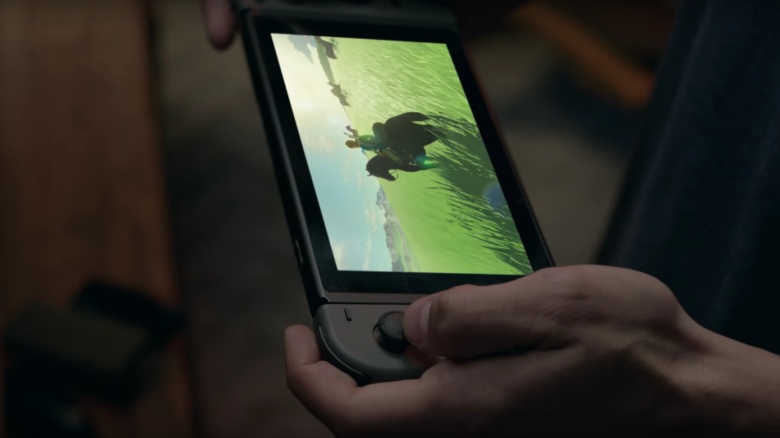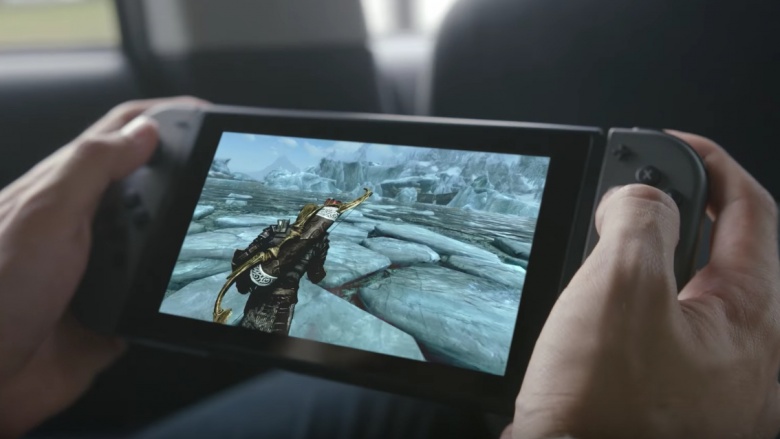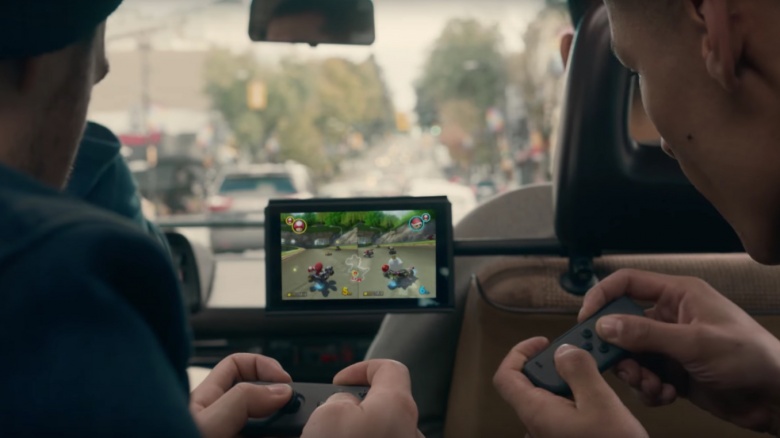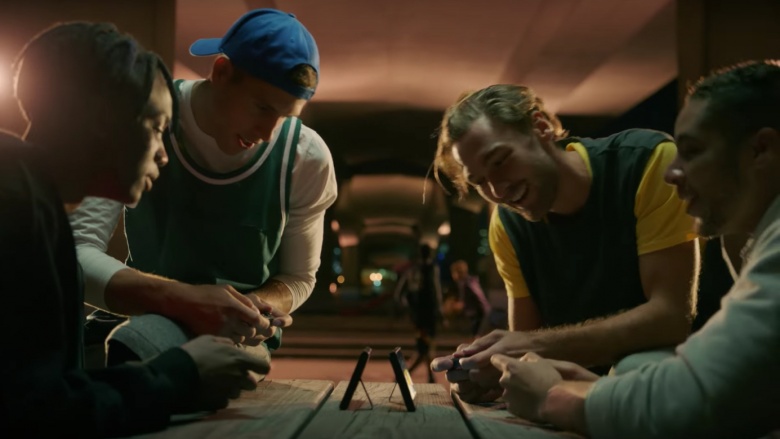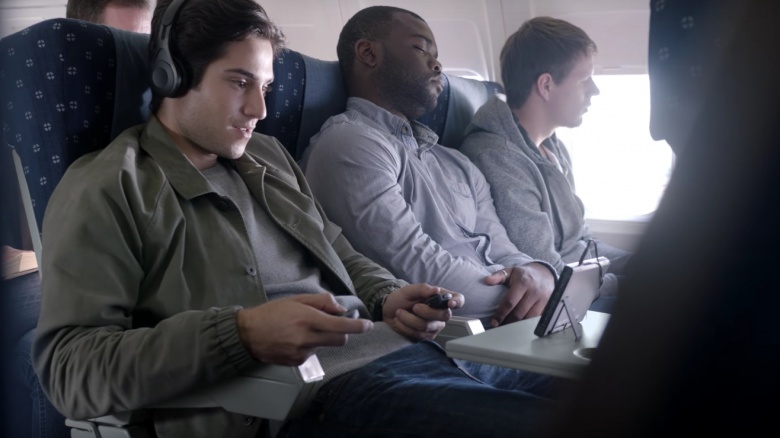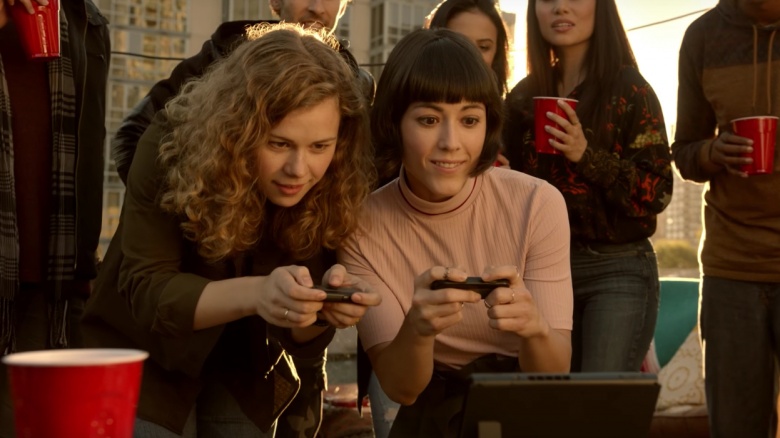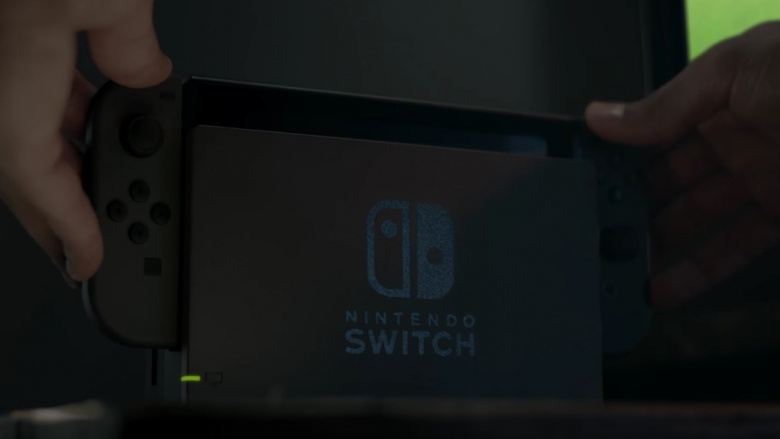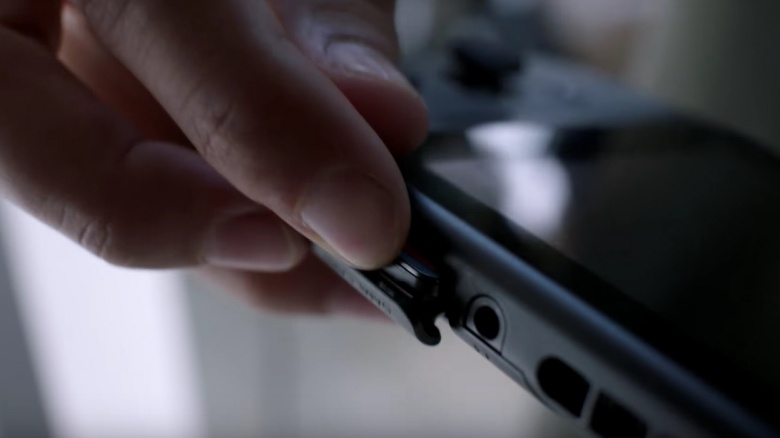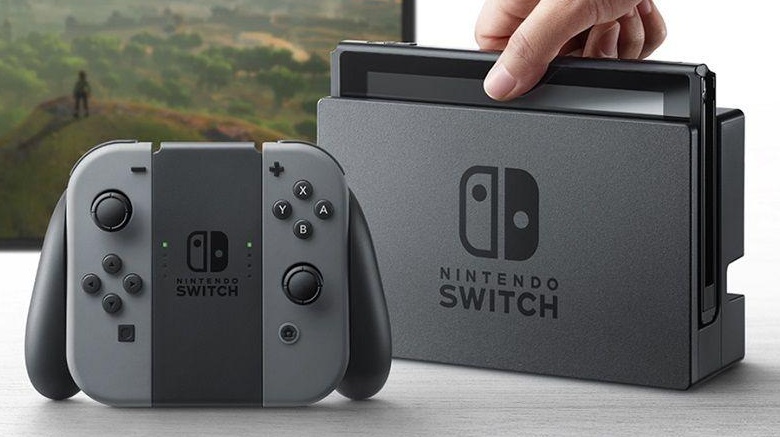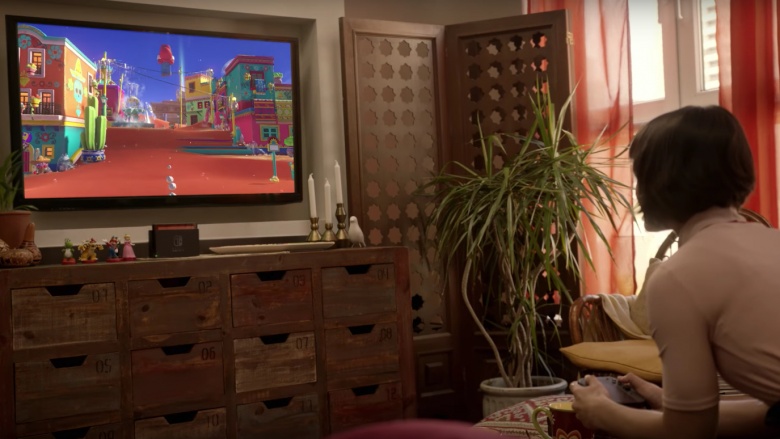Why We're Worried About The Nintendo Switch
Nintendo has officially announced the successor to the Wii U, and it's one of the most original consoles to ever hit the video game industry. The Nintendo Switch, formally known as the Nintendo NX during development, was revealed to be a hybrid home and travel device with a pull-out screen that can be used on the go. It's similar to a Wii U, but slimmer and can actually work more than 10 feet away from the base station. The announcement trailer looks great and, like any true video game lover, we want to see this thing go on to be a smash hit.
There's no doubt it's ambitious, but we do have a few concerns. Nintendo still has a few more things to prove before we plunk down our cold, hard cash upon its March 2017 release.
It's portable, but is it tough enough not to break?
The announcement trailer is full of hip millennials pulling the Switch's mobile component out and taking it on the road, playing new Zelda and Mario Kart games at the park or at rooftop parties (because don't we all take our consoles to rooftop parties?). That's awesome, and we're all for having a portable console that's seamless with what we play on our flatscreen at home.
But is this thing really up to the challenge of hitting the road in your backpack for a road trip, or getting tossed into your carry-on bag for a flight? It looks amazing, but it's hard to tell if this thing is tough enough not to break once you introduce it into the real world. And if it does break on the road, you've also lost your home console in the process. Ouch.
Will it have game developer support?
The Wii U was fairly quirky on its own, but a lack of strong third-party developer support really stacked the deck against Nintendo's most recent console. Yes, the company promises they have some big names on board for the Switch — but it'll obviously be a while until we see just how much attention these major studios actually pay to it.
Early on, we're happy to say things look promising. As of now, Nintendo has more than 40 developers pledging to support the Switch, including heavy hitters like EA, Activision, Sega, Bethesda, Telltale, Ubisoft, Warner Bros. Interactive, and Epic. For the sake of comparison, the Wii U barely cracked 20 developers, so the Switch is certainly ahead of the curve for now. But again, pledging support and actually pumping millions of dollars into game development are very different things. So it sounds looks promising, but time will tell.
More controller confusion
This has been an annoyance since the original Wii, and it looks to continue with the Switch. Nintendo has been trying to make its controller situation more versatile ever since the Wii debuted, and you could control that console with a virtual ton of different devices. That's certainly cool, but it gets frustrating when it starts fragmenting to a point where only certain games play with certain controllers (and controller add-ons).
In the announcement trailer, we see a traditional pro-style controller, plus the pop-off controller devices that can be used independently or attached to the portable screen (plus another snap-on controller device to apparently use at home). Then we see players using just one of those add-on pieces while playing two-player games on the portable component. So we're assuming the controller scheme can adapt to the layout and buttons, depending on the use at the time? Nintendo hasn't clarified exactly how that will work, but we hope they do soon, because while in theory, this makes the console more versatile, in execution it's proven frustrating in the past. Regardless, it looks like Nintendo controllers will continue to be more complicated than they have any need to be for quite some time.
That screen is way too small for multiplayer
Having a system you can pop off and carry around with a built-in screen is an awesome idea, but actually showing people huddled around that tiny thing trying to play multiplayer games? It just comes off as silly, and ridiculously impractical. Nintendo has not confirmed the exact size of the portable screen, but it looks comparable to around an iPad Mini. Can you imagine a group of grown adults huddled over a screen that small (which is typically split in half for a multiplayer game) trying to play a game? Again, it's a neat concept, but it's hard to think this will be all that useful in the real world.
How's the battery life?
Though we see a guy apparently carry his Switch on a plane ride and play a game without it dying (maybe it was a short plane ride?), Nintendo has remained mum on the battery life for the portable device. The console itself looks to be relatively thin (meaning there's not much room for a battery in there, along with all the other chipsets and processors required to run a gaming console), and anyone who has ever went on a gaming binge on their iPhone or iPad can attest to hardcore gaming devouring battery life.
So this is certainly a big question for players looking to take the Switch on the road. Another question: can you charge the portable device without the base station (i.e. if you took it on vacation and didn't want to lug the base everywhere you went)?
There are a lot of removable parts, which means more stuff to lose
Though Nintendo is apparently marketing the Switch toward an older demographic, the company's suite of foundation titles, such as Mario, Zelda, and Splatoon definitely have crossover appeal with kids. As any parent is well aware, snap-off parts are bound to get lost—and the Switch looks to have quite a few of them (we'd imagine they're not cheap to replace, either). There are the two controller pieces on the side, the controller "base" for use at home, and the tablet component itself. That's a lot of moving pieces for a home console, especially when there's a chance of losing some of them on the go.
Will it be a weaker machine than what we already have?
All Nintendo has said about the innards of the Switch is that it'll be running a custom Nvidia Tegra processor, comprised of a system-on-a-chip that includes an Nvidia graphics processing unit. Exactly how that will stack up to the processing power of the PS4 and Xbox One (not to mention whichever consoles follow them up) remains to be seen.
There's also the question of how the unit will be cooled, especially when it's in your hands. Nintendo has a recent reputation of releasing hardware that's a bit underpowered when compared to its competition, so it'll be interesting to see where these numbers land.
Cartridges are awesome, but these are so, so small
One of the coolest things about the Switch is it'll be making the, well, switch back to cartridge-based games. Nintendo built its brand on cartridges, sticking with the format long after everyone else jumped ship for CDs. In the decades since, cartridges have made a comeback, with tech such as MicroSD cards and USB drives capable of packing a ton of data into a small and durable package.
We get a peek at the Switch games here, and they are definitely cartridges — and they're also amazingly small. Like, MicroSD card small (or smaller). That's great, obviously, but it also makes these $50+ titles a whole lot easier to misplace. And crush.
What's the price?
Nintendo made the Wii a hit by riding a wave of unique games and a launch-day price point ($200, thanks to being a slightly weaker system that cost less to produce, and thus less to sell) that basically kneecapped the much more expensive PS3 and Xbox 360. The Wii U was introduced at $300 for a base package, and we still don't know how much the Switch will cost at launch.
Rumors indicate Nintendo is eyeing a $350 price point, which would put it on par with (or above) current costs for the PS4 and Xbox One. Of course, the PS4 cost $399 at launch, and the Xbox One was $499, so it's still below average for a debut price. The question is: will the Switch be a good enough system to justify even that low ticket price?
After Wii U, is this Nintendo's Dreamcast?
There's no denying the Wii U underperformed over the past few years, as hardcore gamers headed to Playstation and Xbox, while many casual gamers opted to just hang onto their old Wii consoles. The Wii U never caught on, and the console lost a good bit of developer support along the way. Yes, Nintendo is looking to shore up that support with the Switch, but the Nintendo "brand" has certainly taken a hit.
So it begs the question: Is the Switch basically Nintendo's Sega Dreamcast? Sega was a hardware juggernaut once, and they released the Dreamcast in 1999 early, in order to beat the PS2, Xbox, and Gamecube to market (much like the Switch will do for the PS5 and XBox2). The Dreamcast was a bust, and it turned out to be the company's last gasp at hardware. If the Switch doesn't catch on fast, will Sony and Microsoft's new consoles overtake Nintendo for good by 2018? Magical plumbers everywhere wait with bated breath.

